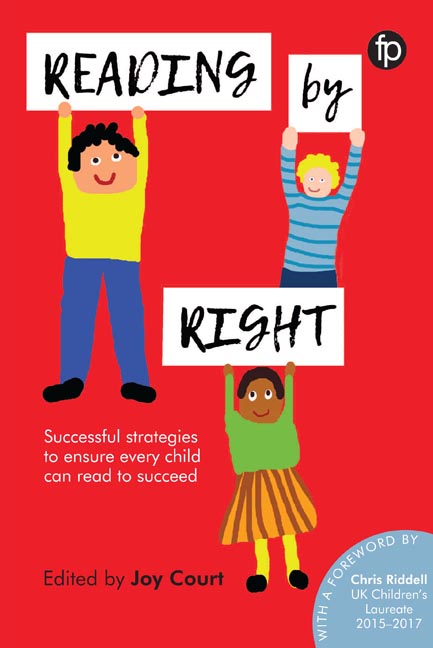Book contents
- Frontmatter
- Dedication
- Contents
- List of figures, boxes, case studies and appendices
- Foreword
- Contributors
- Introduction
- 1 Supporting every child to read
- 2 Listening to their voices: what research tells us about readers
- 3 Becoming a reluctant reader
- 4 Reading Club: a case study from Finland
- 5 Trained reading helpers: Beanstalk's magic ingredient
- 6 Let all children experience the joy of reading: promoting children's reading in Korea
- 7 Reflecting readers: ensuring that no one is excluded
- 8 Pulling in reluctant readers: strategies for school librarians
- 9 Not just for the avid reader: inclusive Carnegie and Kate Greenaway shadowing
- 10 Listen up! How audiobooks support literacy
- 11 Reading the future
- Index
2 - Listening to their voices: what research tells us about readers
Published online by Cambridge University Press: 08 June 2018
- Frontmatter
- Dedication
- Contents
- List of figures, boxes, case studies and appendices
- Foreword
- Contributors
- Introduction
- 1 Supporting every child to read
- 2 Listening to their voices: what research tells us about readers
- 3 Becoming a reluctant reader
- 4 Reading Club: a case study from Finland
- 5 Trained reading helpers: Beanstalk's magic ingredient
- 6 Let all children experience the joy of reading: promoting children's reading in Korea
- 7 Reflecting readers: ensuring that no one is excluded
- 8 Pulling in reluctant readers: strategies for school librarians
- 9 Not just for the avid reader: inclusive Carnegie and Kate Greenaway shadowing
- 10 Listen up! How audiobooks support literacy
- 11 Reading the future
- Index
Summary
Introduction
For decades, research into reading has probed a central question: how can we best create lifetime readers? We are certainly skilled at creating schooltime readers: reading is assigned and assessed. However, school-time reading does not always translate into lifetime reading. Can we see where children and young people are falling through the gaps, and what can research show us how to help those struggling readers? The question is, then, how do lifetime readers develop? What experiences contribute to a lifelong love of books and reading and how can we ensure that these experiences can be universal?
The start of each new semester of my graduate young adult (YA) literature class is a time of renewal for me. Students who are pursuing their MLS (Masters of Library Science) degree have, as their initial assignment, the task of writing their reading autobiography. This reading autobiography reflects on the memories the students have about reading.
The assignment did not originate with me but was one that I completed as a graduate student. As it turns out, my YA literature professor Dick Abrahamson was also asked to complete his reading autobiography as a graduate student of G. Robert Carlsen. Carlsen began assigning the reading autobiography to his students in the mid-1950s and in the 1980s Carlsen and his doctoral student Anne Sherrill began an analysis of thousands of reading autobiographies. Their conclusions were presented in a book entitled Voices of Readers: how we come to love books (Carlsen and Sherrill, 1988). What the voices of thousands of readers recounted in their journey to lifetime reading should continue to inform our best practices today, some 30 years later. Since the early 1990s, I have combed through countless reading autobiographies. The important factors that Carlsen and Sherrill (1988) highlighted in their book as ‘experiences likely to produce readers’ still ring true for contemporary readers. This chapter will review some of the findings of Carlsen and Sherrill. Make no mistake, though: these findings are supported by other research as well.
The essential factors in developing a lifelong love of books and reading include having models of reading at home and in the classroom (noted by Carlsen and Sherrill, 1988, 158–9, as essential for ages 2 to 11); having access to books and other reading materials (essential for ages 2 to 11);…
- Type
- Chapter
- Information
- Reading by RightSuccessful strategies to ensure every child can read to succeed, pp. 17 - 32Publisher: FacetPrint publication year: 2017



